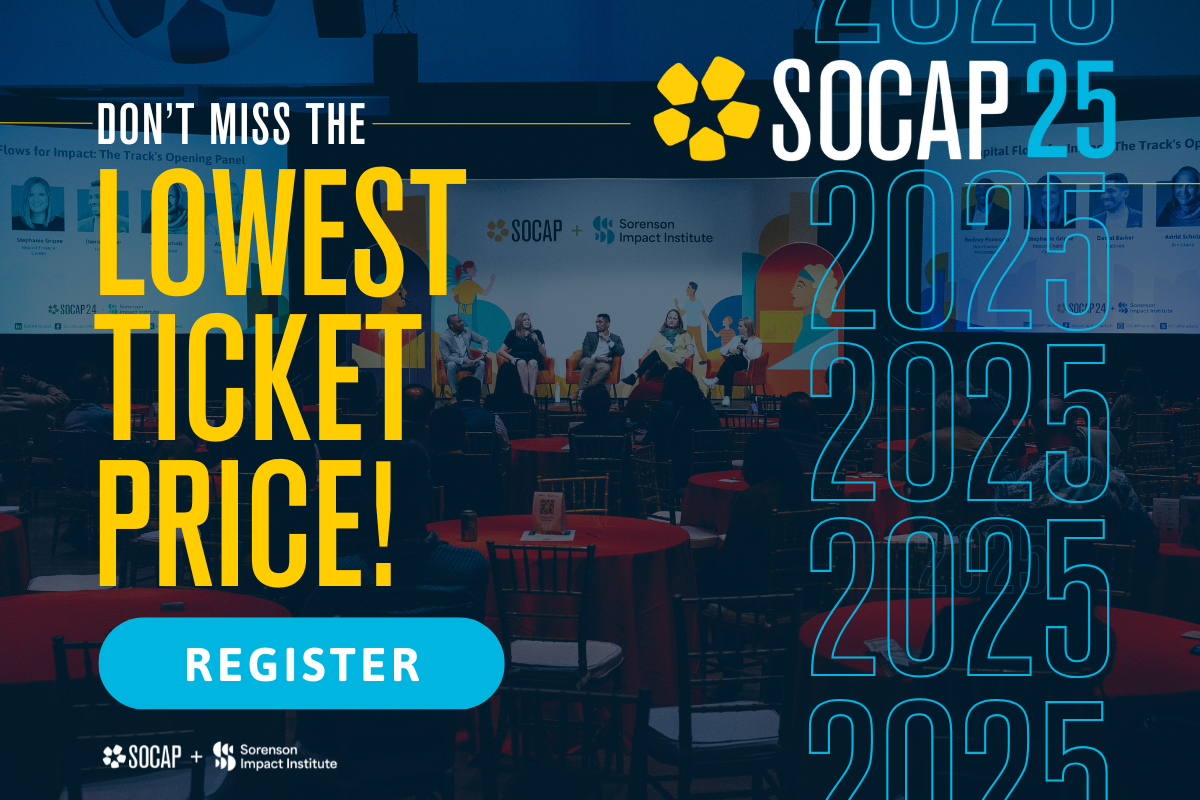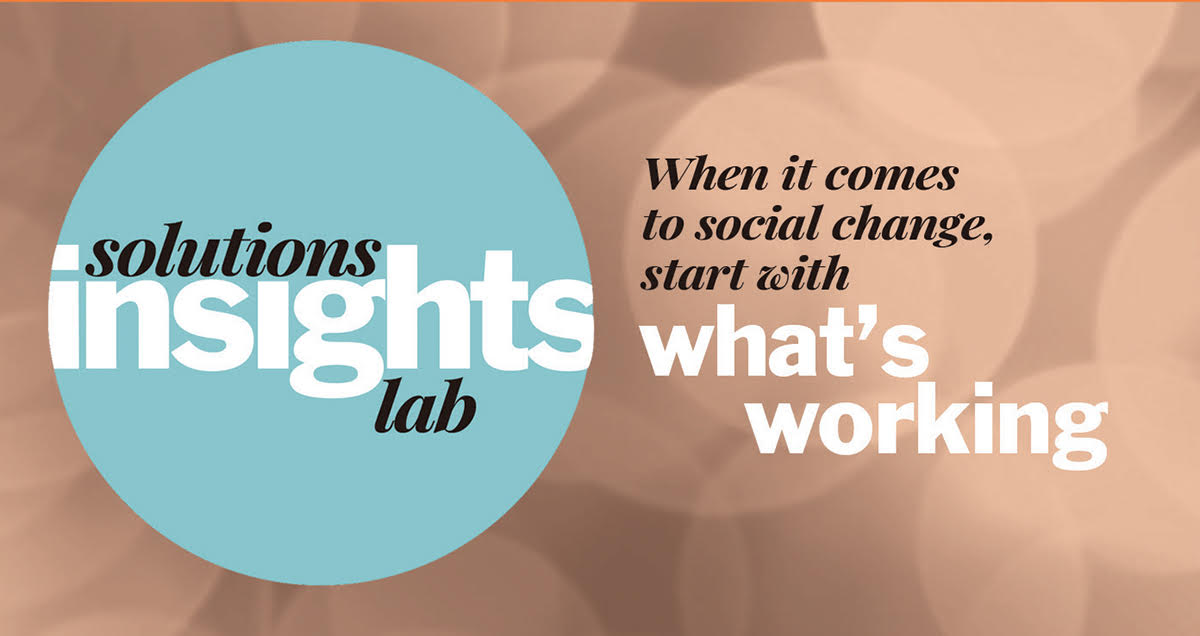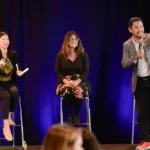This article is part of a series, The Vision of Advocates: Bold Insights From Advancing Racial Equity.
“I just want people to feel like they can achieve something.”
— Common
I am not one of those entrepreneurs who has always been an entrepreneur. I wasn’t selling jewelry to my friends in elementary school, I never wanted to have a lemonade stand, and I wasn’t hustling tickets to anything. I also don’t remember knowing anyone who owned their own business. It was always the plan that I would go to college and then start a career.
In fact, after leaving another not-a-great-fit job for reasons I didn’t really understand, I had a friend say to me, “That’s why I work for myself. I could never go back to work for someone else. And I’ve had some of the best bosses in the world.” And just like that, that longing inside me rested. I was an entrepreneur.
The journey has not been easy, and I have not entrepreneur-ed my way into fame or riches (yet), but it has been the only option from the moment I knew it was one. I’ve tried to walk away from it. Twice. Tried to trade the anxiety for stability. Neither time resulted in any version of stability, and instead, opened the door for the longing to rise up again and remind me that the only way I can control my destiny and create the change I want to see is by being an entrepreneur.
There are many things I hope will be different about my future work, and I 100 percent know that the reason I am able to even have that hope is because I have access to financial support, emotional support, and community support. I am lucky. Over the years I’ve been able to count on the financial and emotional support of my mom or sister to cover the slumps. I have a super well-adjusted kid who grasped very quickly that some weeks we ate pasta and some weeks we ate steak, and that a trip to Trader Joe’s meant I had a new client. I also had credit cards to use to take a significant number of trainings or attend networking groups and many times pay my utilities. I have met, worked for, collaborated with, and promoted countless other female entrepreneurs. We have taken long lunches on a Wednesday to talk about how lucky we are, and we have reached out at midnight on a Saturday to cry because we are working and broke and scared.
Being an entrepreneur has helped me create change in ways I could never have imagined, and it has been one of the greatest joys of my life. It is also incredibly empowering: in the words of a (fictional) entrepreneur in one of the world’s oldest industries: “I say who, I say what, and I say how much.” It is also something I wish for women everywhere, and yet, without the resources I have, it would seem impossible.
The reality is that for most women, and particularly low-income and immigrant women, those resources do not exist.
Enter Lourdes Perez-Ramirez. Perez-Ramirez is an entrepreneur who lives in Florida and grew up in Puerto Rico. Around the time I started my first business, she was running HispanEduca, an organization with a mission “to help Hispanic parents prevent their children from becoming victims of the existing education apartheid by helping them understand the education policies that were affecting their children’s education.” These parents taught Perez-Ramirez that lack of caring was not the problem. Lack of time, lack of money, and lack of rest — those were problems. They were doing whatever they had to do to put food on the table, and they were doing it self-employed, but not as entrepreneurs, which basically means they had to pay their own taxes, had no benefits, and lacked the status and power of an entrepreneur. And many (if not most) of them were doing it for poverty-level wages.
In 2018, both believing that true entrepreneurism could be a way out of poverty for these women and unsure if they would be receptive to it, Perez-Ramirez created DuGudd Corporation and launched DuGudd HOY®, a digital newspaper, in Spanish, covering all aspects of running a business and sharing the stories of women who were doing it. She calls this her testing period. It is a great success, and she is now launching Phase 2 of her business: Las MUSAS™ or simply, MUSA. Living up to its name, meaning muse, MUSA will be a full-circle entrepreneur-creating endeavor.
Perez-Ramirez and her team will create clusters of microenterprises, consisting of 3 to 9 women, and help them start their own businesses. They will teach them how to run a business, how to get insurance and bank accounts, and how to file corporate documents. And, as long as they agree to use sustainable products, DuGood Corporation will purchase the supplies they need to get started — all at no cost to the women. When the women are ready, DuGood will also secure contracts for them and operate as a mid-level provider for supplies, transportation, and more. Buying these things in bulk for various clusters will allow MUSA to sell them to the women at affordable rates and still make money.
There will also be ongoing training and support, to continue to empower these women and other Spanish-speaking women in the US and Spanish-speaking Caribbean countries, focusing not only on business content but specifically social-impact business content. Essentially, she will provide them with all of the things I had access to: money, empowerment, and community.
The icing on the cake? Her goal is that once they have successful businesses, they will have more time and energy to be involved in their children’s lives and education.
They are launching on or around March 9, in honor of International Women’s Day (and Lourdes’ 67th birthday!). To learn more, visit DuGudd HOY.
See the rest of this series at The Vision of Advocates: Bold Insights From Advancing Racial Equity.






